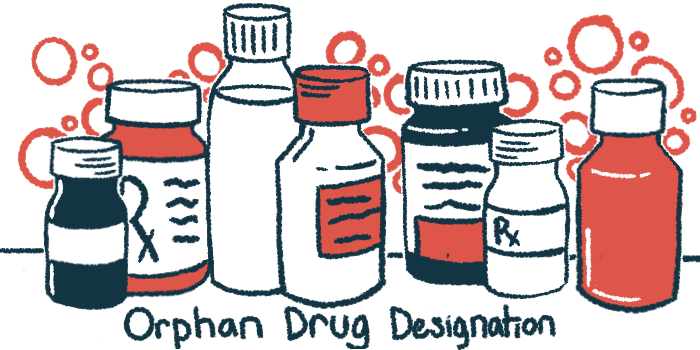T-cell therapy CK0803 earns FDA orphan drug designation for ALS
Boosting levels of Tregs may help slow disease progression, per scientists
Written by |

The U.S. Food and Drug Administration (FDA) has granted orphan drug status to CK0803, a regulatory T-cell therapy being developed by Cellenkos for amyotrophic lateral sclerosis (ALS), with a goal of slowing disease progression.
The FDA designation is intended to accelerate the development and review of new treatments for rare diseases — those affecting fewer than 200,000 people in the U.S. It provides a range of incentives, including tax credits, exemptions from certain FDA fees, and seven years of market exclusivity if the drug is ultimately approved.
“Receiving orphan drug designation for CK0803 in ALS underscores the importance of bringing novel, transformative treatment options to patients suffering from this rare disease,” Simrit Parmar, MD, founder of Cellenkos, said in a company press release.
Regulatory T-cells, called Tregs, are specialized immune cells that work to put the brakes on the immune system, preventing excessive inflammatory responses and maintaining a healthy immune balance.
These cells are often abnormal and found at lower levels in people with ALS. That limits their ability to suppress harmful immune responses that contribute to nerve cell death.
This has led scientists to speculate that increasing the levels of Tregs or boosting their function may help to slow disease progression in people with the neurodegenerative condition.
CK0803 is made of a subset of functional, donor-derived Tregs that are capable of migrating to sites of inflammation in the brain and spinal cord. Once in the brain, these cells can help neutralize overactive microglia, the brain-resident immune cells, and restore immune balance, according to Cellenkos.
Because the Tregs in CK0803 are derived from umbilical cord blood, CK0803 can be manufactured as a so-called off-the-shelf therapy, one that is readily available and can be administered to multiple patients. It also does not require donor-patient matching in the way that many cell-based therapies do.
Clinical trial now testing T-cell therapy in adults with ALS
Earlier this year, Cellenkos and scientists at Columbia University in New York published data from a small proof-of-concept study showing that treatment with the company’s Tregs was well tolerated and appeared to slow disease progression among people with ALS.
The study enrolled six participants, who each received Tregs via four weekly intravenous, or into-the-vein, infusions, followed by six monthly infusions. Levels of neurofilament light chain (NfL), a marker of nerve damage, also decreased with Treg treatment, the data showed.
Cellenkos is now running a Phase 1/1b clinical trial, called REGALS (NCT05695521), that is testing CK0803 in approximately 66 adults with ALS. Participants are receiving 100 million CK0803 cells every week for the first four infusions, and then every month for the next five doses.
The trial included an open-label Phase 1 run-in part, in which the safety and tolerability of multiple CK0803 doses were established in the first six participants. A randomized, placebo-controlled Phase 1b was then cleared to start last year, after a review of initial safety data.
Newly released preliminary results from REGALS have now shown that CK0803 appears to slow disease progression in both spinal-onset ALS — where symptoms usually begin with weakness in the hands or feet — and bulbar-onset ALS, in which symptoms first affect speech and swallowing. The therapy also was well tolerated.
According to the company, disease progression was minimal during the treatment period for spinal-onset ALS patients for more than 196 days, or about 6.5 months, with benefits lasting for more than 50 days after treatment ended. People with bulbar-onset ALS also experienced improvements, although benefits were observed later in the treatment period.
We aim to deliver a transformative therapeutic that can slow disease progression in ALS, and decrease levels of [NfL], a biomarker of active neurodegeneration and neuroinflammation.
Blood tests also showed NfL reductions in a subset of patients, with decreases correlating with slower disease progression.
Overall, no dose-limiting toxicities were reported. Participants received the infusions in an outpatient setting and were able to return home the same day, the company said.
Cellenkos is now planning to launch a new randomized, placebo-controlled trial of CK0803 in 2026.
“We aim to deliver a transformative therapeutic that can slow disease progression in ALS, and decrease levels of [NfL], a biomarker of active neurodegeneration and neuroinflammation,” Parmar said.






